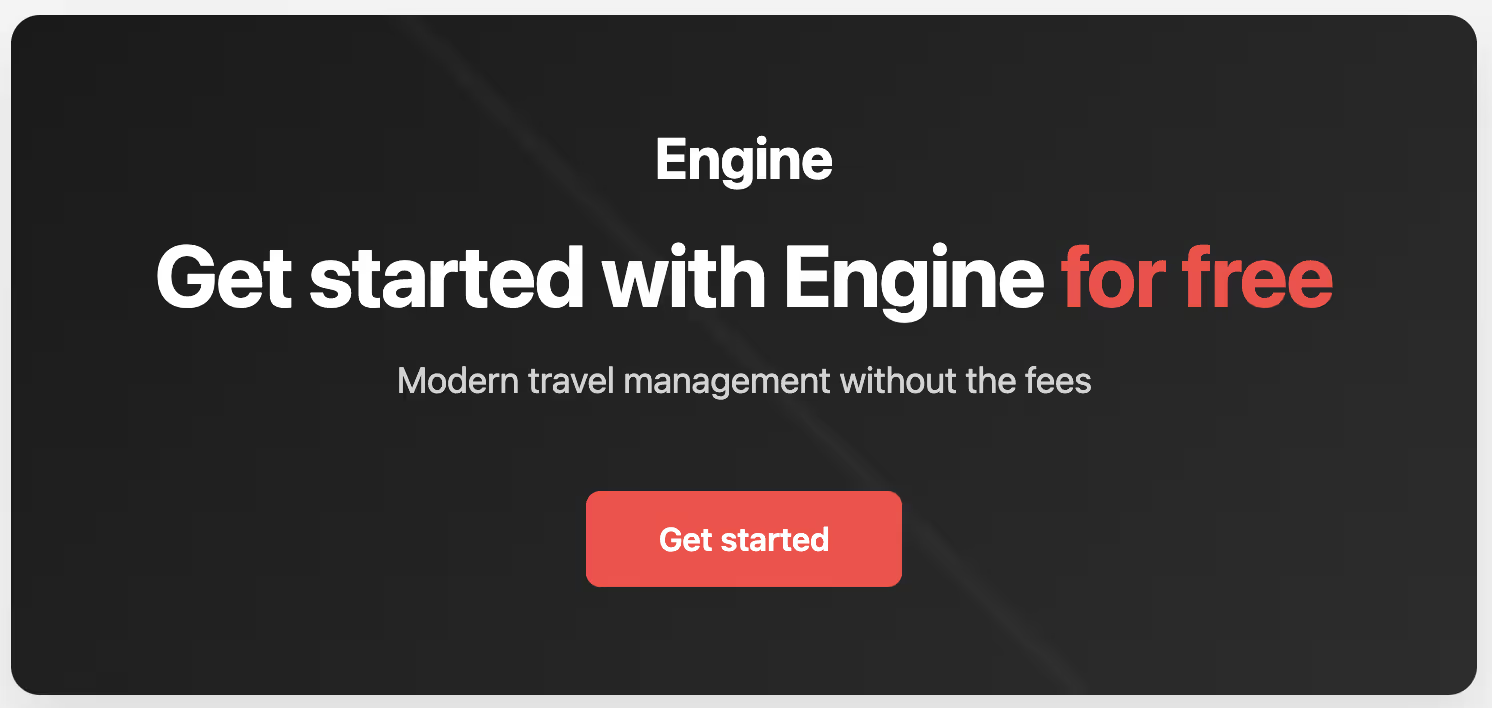Travel Approval Workflows That Give You Control Without Slowing Teams Down

You discover $400-a-night hotels on the invoice three weeks after checkout. Your crew books rooms you never approved while you're stuck in meetings. Finance blames you for overruns you couldn't prevent because no one enforced the policy before the money was spent.
Most companies either give unlimited booking access and watch costs explode, or lock down every booking and watch projects grind to a halt.
You need approval controls that enforce policy automatically, block unauthorized spend at checkout, and keep crews moving without you signing off on every $120 hotel room.
Here's how spending limits, role-based access, and booking restrictions should work together to give you total control without becoming the bottleneck.
Your Crews Book Whatever They Want Until It's Too Late
Picture this: Your electrical crew needs rooms near the Richmond job site. You set a $150 per diem limit. Three weeks later, Finance forwards you the Amex statement showing $275-a-night downtown hotels.
The damage is already done. You can't get the money back. The crew checked out weeks ago. Your project budget just blew past estimates because travel wasn't controlled at the source.
The alternative? Flip to the other extreme and require manual approval for every booking. Your crew waits 48 hours for you to approve a $120 room while the job site sits idle. They start paying out-of-pocket just to keep moving. You're reviewing routine travel at 11 PM instead of managing actual work.
Neither works. You need controls that stop bad bookings before checkout, not policies that slow everyone down or get ignored until the invoice arrives.
Projects slip because rooms weren't booked on time. Crews get frustrated by bureaucracy that doesn't match field realities. Managers waste hours reviewing requests that should never need approval. Finance spends days reconciling unauthorized spend nobody caught.
You need policy enforcement at booking. Different teams need different access levels. Rules that work automatically without you manually reviewing every trip within budget.
Enforce Spending Limits at Checkout, Not After
Engine lets you stop expensive bookings before they happen. Set spending caps by role, department, or market. Your platform only shows rooms that fit the policy. The $275 downtown option never appears as a choice because it's blocked at search.
Your crew books compliant rooms instantly. You're preventing policy violations, not discovering them on next month's invoice.
- Set flat caps: Crews only see rooms at or below that price. Nothing to approve because expensive options don't exist at checkout. Your cap is $150? No rooms over $150.
- Build tiered limits: Start at $150, escalate to $175 if nothing's available, then $200. Engine shows the lowest rate first and only goes higher when necessary. Crews book compliant accommodations without hunting for options.
- Adjust by location: $250 for New York City sites, $150 for secondary markets. Engine applies the right limit based on where work is happening.
When legitimate exceptions occur—weather delays extending stays, last-minute project changes, equipment failures requiring overnight crews—teams request approval with context. You see the reason, the cost, and which rule needs an exception. Approve or deny from your dashboard in seconds.
But routine bookings happen within guardrails you configured once. No approval needed for trips that fit policy. Crews move fast. You maintain total control.
Give Each Role Exactly the Access They Need
Your project manager shouldn't have the same permissions as a field technician. Different roles need different control levels.
- Travelers book only their own trips. They don't see other departments or change company settings.
- Coordinators book for entire crews so you're not approving 10 individual rooms for every rotation. They manage team travel without access to company-wide finances.
- Department Managers see everything in their department and adjust policies for their teams. But they're locked out of other departments unless you explicitly grant access.
- Administrators control the entire system: policy management, financial reporting, and company-wide visibility. Only Operations leadership and Finance get this level.
Sims Crane avoided $40,000+ in change fees because managers could approve FlexPro exceptions in seconds without bottlenecking field operations.
Engine let’s you tag every booking with job codes at checkout. Make custom fields mandatory by role—required for managers tracking project costs, optional for field crews who just need a room. Your accounting team stops asking questions because cost allocation happens automatically.
Block Unauthorized Bookings Before They Cost You Money
Policy enforcement happens when you configure rules, not when you manually review requests. Foss Demolition cut booking time by 80% because crews could only see compliant options.
With Engine, you control who books for other travelers. Your coordinator books crew accommodations; field technicians book only for themselves. Prevent overlapping reservations so crews don't accidentally book two hotels for the same night.
Restrict booking windows. No reservations more than 90 days out unless approved. Prevents speculative bookings that lock up budget for trips that may never happen.
Limit platform access to company email domains. Contractors can't add themselves without permission. You control exactly who has booking access.
Control financial visibility. Field crews don't need company-wide spending data. Coordinators don't need visibility into other departments. Finance sees everything. Operations sees their projects. Crews see only what's relevant.
Every unauthorized booking costs time and money to fix after the fact. Duplicate reservations mean cancellation fees. Out-of-policy hotels mean budget overruns. Build controls into your platform once and these problems disappear.
Get Fast Decisions on Legitimate Exceptions
Automatic policy handles most bookings. But when legitimate exceptions happen—equipment delays, weather changes, last-minute client requests—you need fast approvals that don't stop work.
Your crew needs to book an over-budget hotel because the jobsite flooded and everything within policy is sold out. They submit the request with context: the situation, the cost, why policy doesn't work. You see the full picture and approve in seconds from your dashboard.
Track approval patterns over time. If managers constantly request exceptions in certain markets, adjust your policy limits based on real data instead of guessing. Your workflows get smarter as you learn which rules match operational reality.
Critical work doesn't wait for someone to check email. Legitimate exceptions get handled in minutes. You keep total control without becoming the bottleneck crews have to work around.
Enforce Policy at Booking Without Slowing Teams Down
Engine enforces travel policies at checkout. Spending limits block expensive options before crews can book them. Role-based permissions give each person exactly the access their job requires. Custom fields tag every booking with job codes automatically.
Companies like SafeRide Health use Engine's approval controls see measurable results. They saved $191,000 in 8 months through consolidated billing. Stop chasing contractor receipts; start using Engine.
Crews book compliant rooms instantly. Finance reconciles clean data with zero unauthorized spend. Projects move at speed while your budget stays intact.
Stop Approving Bookings at Midnight—Set Up Policy Controls in Under 10 Minutes. Create your free Engine account and enforce travel policy at booking.

Frequently Asked Questions
Can I Set Different Spending Limits for Different Teams?
Yes. Set travel policies by role, department, or location. Field crews get $150 limits while managers get $200. Tag every booking with project codes so you track costs by job without chasing receipts. Different teams get different controls based on what they need.
What Stops Someone From Booking Outside Policy?
Engine's travel policies prevent out-of-policy options from appearing in search results. Teams can't book rooms that exceed your limits because those options don't show up at checkout. Exception requests require approval before booking gets finalized, so you maintain control before money gets spent.
How Do I Handle Approvals When I'm Not at My Desk?
Set up role-based permissions so multiple managers can approve within their authority. Your Operations Manager approves field bookings; Finance approves budget exceptions. When urgent issues happen at 2 AM, Engine's 24/7 support team handles booking problems so crews don't get stuck waiting.
Can I Require Job Codes for Some Roles But Not Others?
Yes. Make custom fields mandatory for managers who need cost allocation but optional for field crews. Your project manager must add a job code; your electrician just books a room. Accounting gets clean data without slowing down crews who don't track project costs.


.jpg)




.jpg)







.jpg)
.jpg)





.avif)









